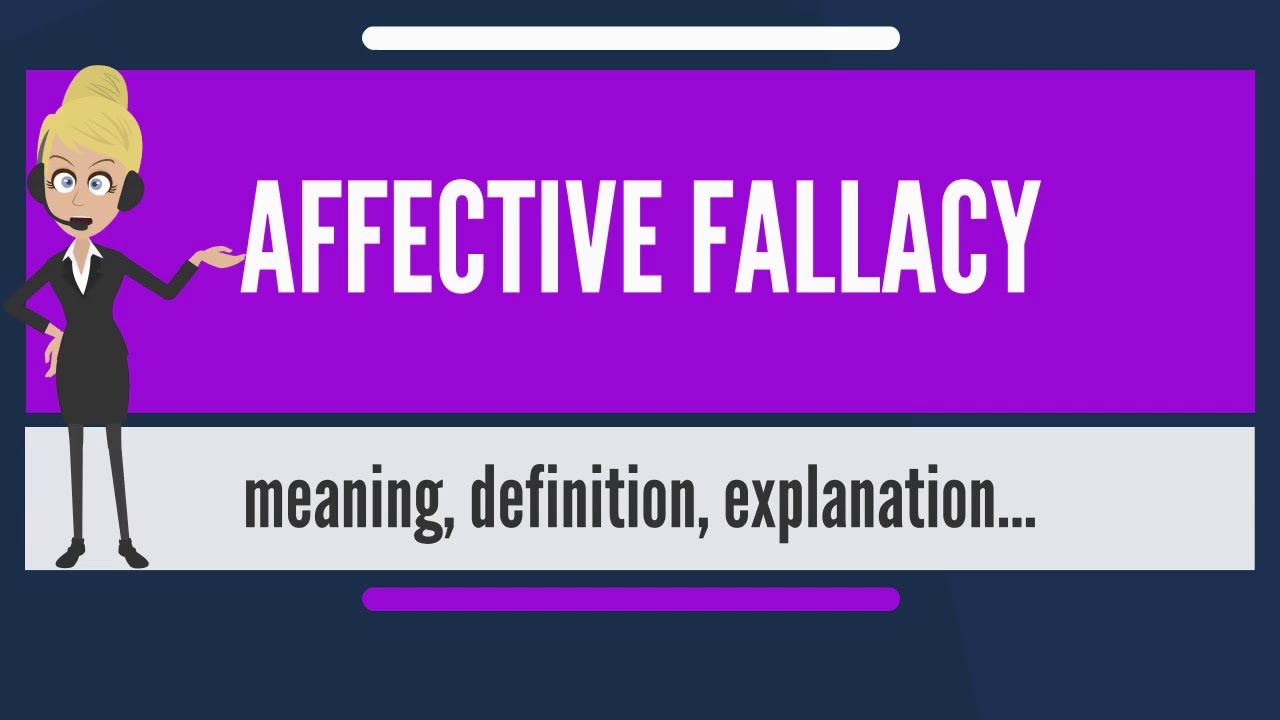What is AFFECTIVE FALLACY? What does AFFECTIVE FALLACY mean? AFFECTIVE FALLACY meaning – AFFECTIVE FALLACY definition – AFFECTIVE FALLACY explanation.
Source: Wikipedia.org article, adapted under https://creativecommons.org/licenses/by-sa/3.0/ license.
SUBSCRIBE to our Google Earth flights channel – https://www.youtube.com/channel/UC6UuCPh7GrXznZi0Hz2YQnQ
Affective fallacy is a term from literary criticism used to refer to the supposed error of judging or evaluating a text on the basis of its emotional effects on a reader. The term was coined by W.K. Wimsatt and Monroe Beardsley in 1946 as a principle of New Criticism which is often paired with their study of the The Intentional Fallacy.
The concept of affective fallacy is an answer to the idea of impressionistic criticism, which argues that the reader’s response to a poem is the ultimate indication of its value. It is the antithesis of affective criticism, which is the practice of evaluating the effect that a literary work has on its reader or audience. The concept was presented after the authors had presented their paper on The Intentionalist Fallacy.
First defined in an article published in The Sewanee Review in 1949, the concept of an affective fallacy was most clearly articulated in The Verbal Icon, Wimsatt’s collection of essays published in 1954. Wimsatt used the term to refer to all forms of criticism that understood a text’s effect upon the reader to be the primary route to analyzing the importance and success of that text. This definition of the fallacy, if strictly followed, touches on or wholly includes nearly all of the major modes of literary criticism, from Ovid’s docere delictendo (to teach by delighting), Aristotle’s catharsis, and Longinus’s concept of “transport” to late-nineteenth century belles-lettres and the contemporary Chicago Critics. For Wimsatt, the fallacy led to a number of potential errors, most of them related to emotional relativism. A view of literature based on its putative emotional effects will always be vulnerable to mystification and subjectivity; Wimsatt singles out the belletristic tradition exemplified by critics such as Arthur Quiller-Couch and George Saintsbury as an instance of a type of criticism that relies on subjective impressions and is thus unrepeatable and unreliable.
For Wimsatt, as for all the New Critics, such impressionistic approaches pose both practical and theoretical problems. In practical terms, it makes reliable comparisons of different critics difficult, if not irrelevant. In this light, the affective fallacy ran afoul of the New Critics’ desire to place literary criticism on a more objective and principled basis. On the theoretical plane, the critical approach denoted as affective fallacy was fundamentally unsound because it denied the iconicity of the literary text. New Critical theorists stressed the unique nature of poetic language, and they asserted that—in view of this uniqueness—the role of the critic is to study and elucidate the thematic and stylistic “language” of each text on its own terms, without primary reference to an outside context, whether of history, biography, or reader-response.
In practice, Wimsatt and the other New Critics were less stringent in their application of the theory than in their theoretical pronouncements. Wimsatt admitted the appropriateness of commenting on emotional effects as an entry into a text, as long as those effects were not made the focus of analysis.
The Audiopedia
Source



